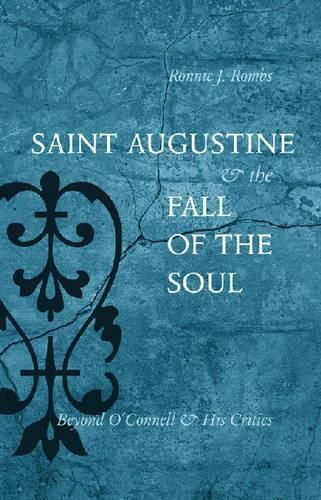Readings Newsletter
Become a Readings Member to make your shopping experience even easier.
Sign in or sign up for free!
You’re not far away from qualifying for FREE standard shipping within Australia
You’ve qualified for FREE standard shipping within Australia
The cart is loading…






Augustine’s understanding of the origin of the soul and the nature of its fall looms as one of the most important and controversial questions among Augustinian scholars since Robert J. O'Connell first began publishing on the topic. O'Connell argued that Augustine embraced Plotinus’s doctrine that the soul existed before the body and only fell into bodily life as the result of sin. Such a position, however, is fundamentally incompatible with Christian anthropology: bodily life is intrinsically corrupted; physical existence is regrettable. The supposition that the most influential Christian theologian after St. Paul maintained such a position generated sharp division between scholars who were convinced by O'Connell and those who were not. There has been as of yet no scholarly consensus on the subject. Saint Augustine and the Fall of the Soul: Beyond O'Connell and His Critics provides first a critical examination of O'Connell’s theses in a readable summary of his work that spanned over thirty years. Secondly, a diachronic study of Augustine’s writings traces the development of his understanding of the soul’s fall, mapping the limits of Plotinus’s influence. The study recognizes the extent to which Augustine embraced Plotinus’s ontology and anthropology and the point at which he abandoned Plotinus. The young Augustine was significantly influenced by Plotinus, and there is substantial evidence that he held a Plotinian doctrine of the soul’s fall. But as the anthropological implications that follow from the Christian doctrine of creation ex nihilo became apparent to him, Augustine departed from Plotinus. Augustine ultimately took the soul’s fall to be a moral lapse, retaining Plotinus’s imagery vocabulary as a way of expressing a psychology of sin, not an ontological fall. Augustinian scholars and students in theology and patristics will find the text an invaluable resource on the topic.
$9.00 standard shipping within Australia
FREE standard shipping within Australia for orders over $100.00
Express & International shipping calculated at checkout
Augustine’s understanding of the origin of the soul and the nature of its fall looms as one of the most important and controversial questions among Augustinian scholars since Robert J. O'Connell first began publishing on the topic. O'Connell argued that Augustine embraced Plotinus’s doctrine that the soul existed before the body and only fell into bodily life as the result of sin. Such a position, however, is fundamentally incompatible with Christian anthropology: bodily life is intrinsically corrupted; physical existence is regrettable. The supposition that the most influential Christian theologian after St. Paul maintained such a position generated sharp division between scholars who were convinced by O'Connell and those who were not. There has been as of yet no scholarly consensus on the subject. Saint Augustine and the Fall of the Soul: Beyond O'Connell and His Critics provides first a critical examination of O'Connell’s theses in a readable summary of his work that spanned over thirty years. Secondly, a diachronic study of Augustine’s writings traces the development of his understanding of the soul’s fall, mapping the limits of Plotinus’s influence. The study recognizes the extent to which Augustine embraced Plotinus’s ontology and anthropology and the point at which he abandoned Plotinus. The young Augustine was significantly influenced by Plotinus, and there is substantial evidence that he held a Plotinian doctrine of the soul’s fall. But as the anthropological implications that follow from the Christian doctrine of creation ex nihilo became apparent to him, Augustine departed from Plotinus. Augustine ultimately took the soul’s fall to be a moral lapse, retaining Plotinus’s imagery vocabulary as a way of expressing a psychology of sin, not an ontological fall. Augustinian scholars and students in theology and patristics will find the text an invaluable resource on the topic.